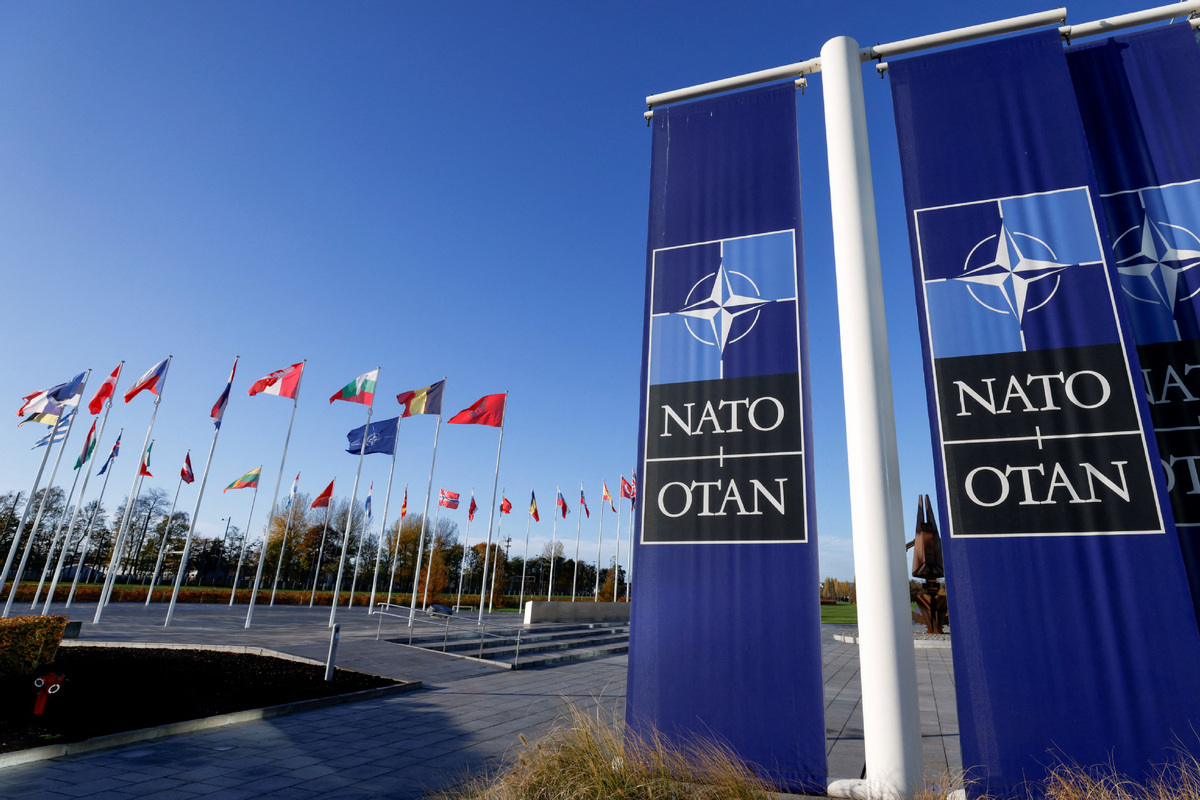NATO tricks require high vigilance


Western military bloc chief's Asia visit seen as hyping up Cold War mentality
Beijing urged NATO on Wednesday not to clamor about the "China threat" and instigate regional confrontation, as the Western military alliance's chief sought to expand the bloc's sphere of influence in Asia.
"The Asia-Pacific is not a battlefield for geopolitical competition and bloc confrontation, and the Cold War mentality is not welcome in the region," Foreign Ministry spokeswoman Mao Ning told a daily news conference.
The remarks came as NATO Secretary-General Jens Stoltenberg concluded a four-day trip to South Korea and Japan, during which he hyped up the so-called China threat and Cold War mentality while calling Seoul and Tokyo to increase armaments and step into the Russia-Ukraine conflict.
"They need the weapons, that's the reality," Stoltenberg said at the Chey Institute for Advanced Studies in Seoul.
In response, Mao said NATO's moves require high vigilance among countries in the region as the bloc claims its regional defensive alliance position remains unchanged, though it has continuously broken traditional defense zones and scopes, and continues to grow military and security ties with Asia-Pacific countries.
Noting that China has always been an upholder of peace and stability in the region and beyond, Mao said China actively facilitates peace talks and promotes de-escalation on hot spot issues.
"NATO should carefully reflect upon the role it has played in safeguarding the security of Europe," she said.
Firm rebuttal
Mao also rebutted a joint statement issued by Stoltenberg and Japanese Prime Minister Fumio Kishida on Tuesday regarding Russia's growing military cooperation with China, saying that the parties concerned should not hype the so-called China threat.
Japan's moves in the military and security spheres have always drawn high attention from its Asian neighbors and the international community, she said.
"Japan should earnestly learn the lessons of history, stick to a path of peaceful development, and not do things that undermine the mutual trust of countries in the region, as well as harm the peace and stability of the region."
Stoltenberg's trip is not just unwelcomed in Asia, but also in Europe.
Croatian President Zoran Milanovic criticized the visit on Monday. "I see that the chief of NATO is in South Korea and Japan," he said. "He does not represent me and my country there. It is not a NATO area, but it is in the neighborhood of China. It has nothing to do with Croatia."
Shigeki Nagayama, a law professor at Tokai University in Japan, said the Japanese government's welcoming of NATO's involvement in the Asia-Pacific region is to enhance its own defense capability, and will only bring new factors of instability to the Asia-Pacific.
Yoichi Komori, an emeritus professor at the University of Tokyo, said the United States and NATO are using Japan as a shield in case of conflict.
"That's what the US and NATO want," Komori said. "That's very dangerous for Japan to give full play to its self-defense forces in East Asia, which is also contrary to Article 9 of the Constitution of Japan. We, as the people, must not allow it."

































